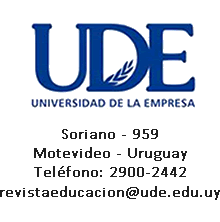The Identification of Students with High Ability/Giftedness
Challenges in the Practice of Specialized Educational Services
DOI:
https://doi.org/10.48163/rseus.2025.13187-106Keywords:
special education, Specialized Educational Service, identification, high ability/giftednessAbstract
This article had the general objective of analyzing the reflections of teachers who work in Specialized Educational Services in some municipal institutions in the state of Paraíba, in the Northeast of Brazil, and what they point out about the study and/or identification of people with High Ability/Giftedness. To this end, the methodology used was qualitative in nature, of the field research type. As an instrument for data collection we used semi-structured, in which five teachers from Specialized Educational Services participated interviews and to process the data we used Content Analysis, proposed by Bardin (2011). Thus, from the material collected, notes emerged about the thematic category that was called “High Ability/Giftedness: concepts and identification of students”. Therefore, the results demonstrate the lack of knowledge about the existence of students with High Ability/Giftedness as well as the lack of instruments and the lack of knowledge of teachers who work in Specialized Educational Services to identify these students beyond IQ tests. Therefore, the research opens ways for new studies to approach the universe of practice, which involve subjects, families, the school community, the management team, municipalities, universities, among others, in order to provide the expansion of knowledge and educational public policies in the area of High Ability/Giftedness.
Downloads
References
Alencar, E. M. L. (2007). Indivíduos com altas habilidades/superdotação: clarificando conceitos, desfazendo idéias errôneas. In: Fleith, D. de S. (org.), A construção de práticas educacionais para alunos com altas habilidades/superdotação. Brasília/DF: Ministério da Educação, vol. 01, 13-24.
Alencar, E. S. (2001). O superdotado: derrubando um preconceito. In Alencar, E. S. Criatividade e educação de superdotados. 119-130. Petrópolis: Vozes.
Alencar, E. S. (2007). Indivíduos com Altas Habilidades/Superdotação: clarificando conceitos, desfazendo idéias errôneas. In Fleith, D. de S. A Construção de Práticas Educacionais para Alunos com Altas Habilidades/Superdotação. v.1: Orientação a Professores. Ministério da Educação (MEC). Secretaria de Educação Especial.
Antipoff, C. A. & CAMPOS, R. H. de F. (2010). Superdotação e seus mitos. Psicologia Escolar e Educacional. 14(2), 301–309.
Bardin, L. (2011). Análise de conteúdo. (70) Tradução: Luis Antero Reto, Augusto Pinheiro. São Paulo: Edições. 280 p. ISBN 978-85-62938-04-7.
Borges, A. A. P., & Barbosa, E. A. N. (2019). Helena Antipoff e a Sociedade Pestalozzi de Minas Gerais: filantropia e ciência em prol dos anormais. História, Ciências, Saúde-manguinhos, 26, 163–177. https://doi.org/10.1590/S0104-59702019000500009.
Brasil. (1988). Constituição da República Federativa do Brasil de 1988. Brasília, DF: Presidência da República. Disponível em: http://www.planalto.gov.br/ccivil_03/Constituicao/ConstituicaoCompilado.htm. Acesso em: 1 ago. 2023.
Brasil. (1996). Lei de Diretrizes e Bases da Educação Nacional. Brasília, DF: Presidência da República. Disponível em: https://www.planalto.gov.br/ccivil_03/Leis/L9394.htm. Acesso em: 1 ago. 2023.
Brasil. (2006). Saberes e práticas da inclusão: desenvolvendo competências para o atendimento às necessidades educacionais especiais de alunos com altas habilidades/superdotação. [2. ed.]. Brasília: MEC, Secretaria de Educação Especial. 143 p.
Brasil. (2008). Núcleo de atividades de altas habilidades/superdotação: documento orientador. MEC/SEESP. Disponível em: http://portal.mec.gov.br.
Campos, R. H. de F. (2003). Helena Antipoff: razão e sensibilidade na psicologia e na educação. Estudos Avançados, 17(49), 209–231. https://doi.org/10.1590/S0103-40142003000300013.
Cupertino, C.M.B. (2008). Um olhar para altas habilidades: construindo caminhos. São Paulo: FDE.
Autor (2023).
Freitas, S. N.; Pérez, S.G.P.B. (2012). Altas Habilidades/Superdotação: atendimento especializado. 2. ed. Marília: ABPEE. 144 p.
Gaskell, G. (2002). Entrevistas Individuais e Grupais. In BAUER, Martin W.; GASKELL, George. Pesquisa Qualitativa com Texto, Imagem e Som: um manual prático. Petrópolis: Editora Vozes. 64–89.
Gonsalves, E. P. (2001). Iniciação à pesquisa científica. Campinas, SP: Alínea.
Marconi, M. de A.; Lakatos, E. M. (2003). Fundamentos de metodologia científica. 5. ed. São Paulo: Editora Atlas.
Pedro, K. M. (2023). Altas Habilidades/Superdotação: características, identificação e atendimento. São Carlos: EDESP-UFScar. 29 p.
Pérez, S. G. B. (2003). Mitos e crenças sobre as Pessoas com Altas Habilidades: alguns aspectos que dificultam o seu atendimento. Cadernos de Educação Especial (22). 45-59.
Pérez, S. G. P. B. & Freitas, S. N. (2009). Estado do conhecimento na área de altas habilidades/ superdotação no Brasil: uma análise das últimas décadas. In REUNIÃO ANUAL DA ANPED, 32, 2009, Caxambu. Anais [...]. Caxambu: ANPEd. p. 1-17. Disponível em: http://32reuniao.anped.org.br/arquivos/trabalhos/GT15-5514--Int.pdf. Acesso em: 09 out. 2023.
Pérez, S. G. P. B., & Freitas, S. N. (2014). Políticas públicas para as Altas Habilidades/Superdotação: incluir ainda é preciso. Revista Educação Especial, 27(50), 627–640. https://doi.org/10.5902/1984686X14274.
Renzulli, J. S. (2004). O que é essa coisa chamada superdotação e como a desenvolvemos? Uma retrospectiva de vinte e cinco anos. Revista Eletrônica, PUC-RS., ano XXVII, 52(1), 75-131. Disponível em: https://revistaseletronicas.pucrs.br/ojs/index.php/faced/article/view/375/272.
Turci, D. A., Rodrigues, L. A., & Lourenço, É. (2014). Helena Antipoff: uma biografia intelectual. Psicologia Escolar E Educacional, 18(2), 355–357. https://doi.org/10.1590/2175-3539/2014/0182829.
Virgolim, Â. M. R. (2007). Altas Habilidades/Superdotação: encorajando potenciais. Brasília: Ministério da Educação. Secretaria de Educação Especial. 70 p.
Winner, E. (1998). Crianças superdotadas: mitos e realidade. Porto Alegre: Artes Médicas.
Published
How to Cite
Issue
Section
License
Copyright (c) 2025 Elizangela Dias Santiago Fernandes, Santuza Mônica de França Pereira da Fonseca, Eugenia Rosa de Lima

This work is licensed under a Creative Commons Attribution 4.0 International License.
Política para revistas de acceso abierto
Los autores/as que publiquen en esta revista aceptan las siguientes condiciones:
a. Los autores/as conservan los derechos de autor y ceden a la revista el derecho de la primera publicación, con el trabajo registrado con la licencia de atribución de Creative Commons (CC-BY), que permite a terceros utilizar lo publicado siempre que mencionen la autoría del trabajo y a la primera publicación en esta revista.
b. Los autores/as pueden realizar otros acuerdos contractuales independientes y adicionales para la distribución no exclusiva de la versión del artículo publicado en esta revista (p. ej., incluirlo en un repositorio institucional o publicarlo en un libro) siempre que indiquen claramente que el trabajo se publicó por primera vez en esta revista.






















